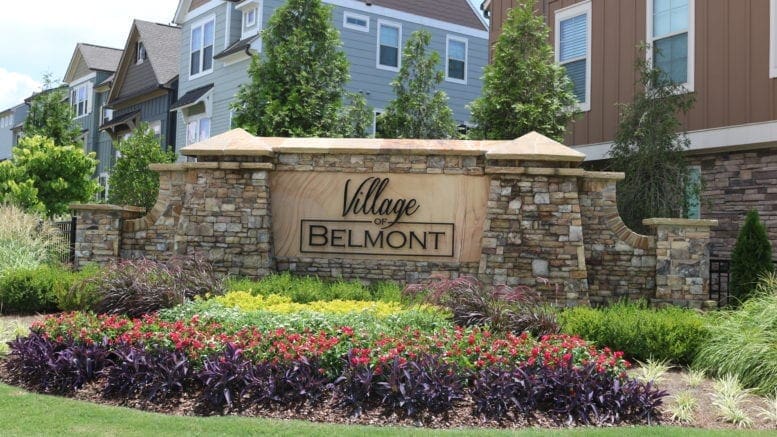[This is a republication of an evergreen article we first published in July of 2017, when the Courier’s web traffic was about a tenth our current readship. We’re reviving some of these articles for a new and expanded audience]
An article in the Atlanta Consitution on Nov. 18, 1954, opened with the following paragraph. “The Belmont Hills Shopping Center, planned as the largest center in the Southeast, will hold its grand opening on Thursday, with Georgia’s Miss Neva Jane Langley, Miss America of 1953, and Seventh Dist. Rep. Henderson Lanham leading ceremonies.”
The article described the grand pageantry planned for opening day. Bill Ward, the developer of the project, would welcome the former Miss America, who would then visit each store in the center. The motorcade bringing her to Belmont Hills would begin in Atlanta, drive through Marietta to Acworth, and turn back to Marietta where she would be given a tour of the Lockheed plant. Anita Ekberg, who was Miss Sweden and later became an actress, was also on hand for the event.
It was quite an opening for a shopping mall.
Belmont Hills was developed by Ward to take advantage of the rapid postwar growth experienced by Smyrna. Kennesaw State University historian Thomas Scott reported in his book Cobb County, Georgia and the Origins of the Suburban South: A Twentieth-Century History that the Cobb Chamber of Commerce had announced that 1,900 new homes were forecast for the Smyrna area by the end of 1955. The city had recently exceeded 10,000 residents for the first time. According to Scott, the original tenants of the shopping center were W.T. Grant, F.W. Woolworth, A&P, Kroger, and Dunaway Drugstore, along with a gas station, restaurant, and a collection of smaller specialty stores.
During the rise of the suburban shopping mall through the 1950s and 1960s, Cobb County saw the development of Cobb Center on South Cobb Drive, Town and Country on Roswell Road, and finally, in 1973, Cumberland Mall. Cumberland, the first enclosed shopping mall in the county, was larger than the other three shopping centers combined, both in terms of square footage and in the number of stores.
As late as the 1990s, new stores were still opening in Belmont Hills, although each closing brought tenants less desirable from a retailer’s point of view. Like most early shopping centers, Belmont Hills went into steep decline, first battered by competition from the larger enclosed malls and finally by the changes in the American public’s shopping habits.
The Atlanta Journal-Constitution, which had provided fanfare for Belmont Hills’ 1954 opening, reported on July 30, 2009, “Belmont Hills Shopping Center in Smyrna is being unceremoniously demolished 55 years after it opened in a blaze of hype and excitement.”
The article also said, “Smyrna City Manager Wayne Wright said the city prefers empty land to what’s at Belmont Hills now. Besides attracting vagrants and rodents, the rundown buildings send a bad message about Smyrna.”
Jack Halpern, who had owned the center for 45 years, began planning to develop it as a mixed-use development. By August 2016, Halpern had developed the Village of Belmont, and the first businesses began to open.

‘The article also said, “Smyrna City Manager Wayne Wright said the city prefers empty land to what’s at Belmont Hills now. Besides attracting vagrants and rodents, the rundown buildings send a bad message about Smyrna.”
The city preferred to have open land rather than what had become a thriving minority business site. Terms like rodents and vermin are still being used by others who have powerful positions to disparage newcomers and minorities. A former Smyrna city council member admitted the city was buying areas where Hispanics lived to increase property values. Remember The Trail of Tears was perpetrated against the Indigenous people to increase property values in Georgia and elsewhere.